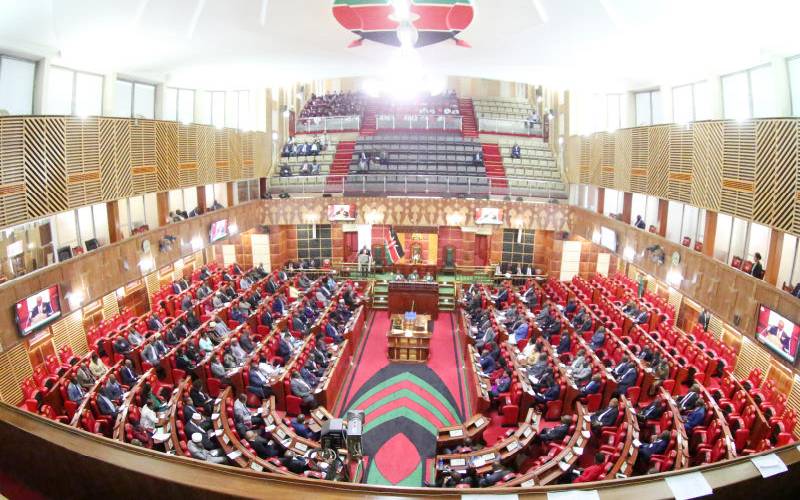Members of Parliament have raised alarm over the slow delivery of justice in Kenya’s courts, urging judges to accelerate case resolutions and restore public confidence in the judicial system.
During a meeting between the Judicial Service Commission (JSC) and the Constitutional Implementation Oversight Committee (CIOC), lawmakers decried the increasing number of backlogged cases and lengthy delays in ruling, which they say undermine the constitutional right to timely justice.
“How is it that the earliest judgement one can expect takes four or five years?” questioned Nambale MP Geoffrey Mulanya. “Kenyans are losing faith. Quick access to justice isn’t a luxury, it’s a constitutional right.”
The MPs emphasized that many Kenyans are forced to travel long distances to access court services, with some regions lacking even a single functioning court. Mwingi West MP Charles Nguna called for a court in every constituency to bring justice closer to the people.
In response, Lady Justice Fatuma Sichale of the JSC acknowledged the scale of the problem, citing a backlog of 257,000 cases and only nine Court of Appeal benches serving the entire nation. While plans are underway to establish 15 additional benches and 14 prototype courts have already been built, she noted that limited funding—less than 1% of the national budget—remains the biggest hurdle.
Suba South MP Caroli Omondi called out systemic inefficiencies, including delayed case transfers and opaque judicial practices, as key contributors to eroding public trust. He emphasized the need for clear case management policies, performance tracking, and judicial accountability.
MPs also raised concerns over the accessibility of succession matters and arbitrary transfer of cases. “Why should a case be filed in Kisumu when the complainant lives in Nairobi?” asked Mulanya.
Chief Registrar of the Judiciary Winfridah Mokaya acknowledged the institutional challenges and legislative bottlenecks that limit JSC’s ability to enforce discipline or implement reforms. She cited tensions between branches of government as a factor hindering judicial appointments and reforms.
Both Parliament and the Judiciary agreed to strengthen collaboration and pursue lasting solutions to improve justice delivery across the country.

